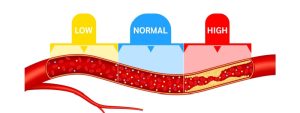Keeping track of your cholesterol levels is essential to maintaining heart health and preventing cardiovascular diseases. However, understanding the numbers you receive from a cholesterol test can be confusing. This blog post aims to demystify cholesterol numbers, explain their meaning, and highlight their importance in overall health management.
What is Cholesterol?
Cholesterol is a fatty substance in your body that helps build healthy cells. However, high cholesterol levels can increase your risk of heart disease. Cholesterol is carried through your blood and attached to proteins. This combination of proteins and cholesterol is called a lipoprotein.
Types of Cholesterol
- Low-Density Lipoprotein (LDL): Often called “bad” cholesterol, LDL carries cholesterol to your arteries. Too much LDL cholesterol can lead to plaque buildup in the arteries, causing them to narrow and harden, which increases the risk of heart attack and stroke.
- High-Density Lipoprotein (HDL): Known as “good” cholesterol, HDL helps remove excess cholesterol from your bloodstream and transport it to the liver, where it can be processed and eliminated from the body. Higher HDL cholesterol levels are associated with a lower risk of heart disease.
Triglycerides are a type of fat (lipid) found in your blood. After you eat, your body converts any calories it doesn’t need right away into triglycerides stored in fat cells. High triglyceride levels can also increase the risk of heart disease.
Total Cholesterol: This is the sum of your blood’s cholesterol content, including LDL, HDL, and a portion of the triglycerides.
Understanding Your Cholesterol Numbers
You receive several numbers when you get a cholesterol test, also known as a lipid panel. Here’s what they typically mean:
Total Cholesterol
- Desirable: Less than 200 mg/dL
- Borderline High: 200-239 mg/dL
- High: 240 mg/dL and above
LDL Cholesterol
- Optimal: Less than 100 mg/dL
- Near Optimal/Above Optimal: 100-129 mg/dL
- Borderline High: 130-159 mg/dL
- High: 160-189 mg/dL
- Very High: 190 mg/dL and above
HDL Cholesterol
- Poor: Less than 40 mg/dL (men), Less than 50 mg/dL (women)
- Better: 40-59 mg/dL (men), 50-59 mg/dL (women)
- Best: 60 mg/dL and above
Triglycerides
- Normal: Less than 150 mg/dL
- Borderline High: 150-199 mg/dL
- High: 200-499 mg/dL
- Very High: 500 mg/dL and above
Why Cholesterol Numbers Matter
High LDL cholesterol and triglycerides, combined with low HDL cholesterol, can increase the risk of plaque buildup in your arteries, leading to atherosclerosis, heart attacks, and strokes. Monitoring and managing these numbers can help prevent cardiovascular diseases and maintain heart health.
How to Manage Your Cholesterol Levels
- Healthy Diet: Eat a diet rich in fruits, vegetables, whole grains, and lean proteins. Avoid foods high in saturated and trans fats, and reduce intake of cholesterol-rich foods.
- Regular Exercise: Engage in at least 150 minutes of moderate-intensity aerobic exercise or 75 minutes of vigorous-intensity exercise per week. Exercise can help raise HDL cholesterol and lower LDL cholesterol and triglycerides.
- Weight Management: Maintain a healthy weight. Losing even a small amount of weight can help improve your cholesterol levels.
- Avoid Smoking: Smoking lowers HDL cholesterol and increases LDL cholesterol. Quitting smoking can improve your cholesterol levels and overall heart health.
- Limit Alcohol: Drinking alcohol in moderation can have a beneficial effect on HDL cholesterol, but excessive drinking can raise triglycerides and increase the risk of heart disease.
- Medication: If lifestyle changes aren’t enough to lower your cholesterol, your doctor may prescribe medication to help manage your levels effectively.
Understanding cholesterol numbers is essential for managing heart health and preventing cardiovascular diseases. Regular monitoring, combined with a healthy lifestyle and, if necessary, medication, can help keep your cholesterol levels in check. Always consult with your healthcare provider to interpret your cholesterol numbers accurately and develop a right plan for you. You can maintain healthy cholesterol levels and protect your heart by taking proactive steps.




